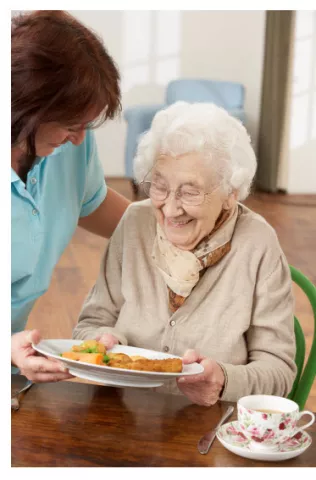
We’ve written previously about efforts to use technology to battle social isolation, from the SmartLab in Seattle to a Meal Makers program in Scotland to the Dublin-based Freebird travel club for seniors. But to emphasize the importance of this issue in today's society, Hannah Griffiths, market analyst with Future Cities Catapult, offers this eye-opener: "Research has shown that, in terms of negative health outcomes, lacking social connections is comparable to smoking 15 cigarettes a day." – Liz Enbysk
Future Cities Catapult and the Internet of Things UK (IoTUK) issued the report -- Social Isolation and Loneliness in the UK -- to raise awareness about the impact of social isolation as well as technologies and best practices that address it.
The report outlines how the combination of social isolation and loneliness places a strain on the National Health Service, with 60% more likely to visit emergency departments if they live on their own than with a spouse. It also suggests the problem affects people’s mental health conditions with a clear link between loneliness and mental health issues like depression.
“Our cities are growing ever more crowded, generating significant challenges for urban design, housing and health and social care provision," suggested Hannah Harniess, Interim Program Director at the DigitalHealth.London Accelerator. "Changing demographics and increasing numbers of people in single-person households are contributing to rising levels of social isolation, loneliness and rising mental health issues."
Among the tech-driven case studies highlighted in the report:
- Casserole Club is a digital service that allows people across the UK and Australia to sign up as cooks and search for diners in their area who they can offer a meal to. The majority of these diners are over the age of 80 and this social enterprise has grown to over 4,000 volunteer cooks nationwide. Most of them (70%) consider their volunteer cooks to be friends and 80% say they wouldn’t have as much social contact without Casserole Club.
- The InTouch Living system in Australia was designed to tackle the increasing cost of social care through features like one-click photo sharing, online activities like language lessons and two-way messaging. These digital solutions have been shown to reduce the burden of cost on social care significantly, according to the report, with an hour of digital social inclusion service being delivered at 60% of the cost of traditional face-to-face emotional support services.
Shifting the balance of power
“New technology is helping us to design digital public services that meet users' needs, provide a better experience and cost less," said Matthew Skinner, Delivery Director at Future Gov, a digital and design agency for local government that launched the Casserole Club. "Digital services like Casserole Club are helping to shift the balance of power back to local communities, providing them with lightweight digital tools to connect and help each other." #CCEOST#



